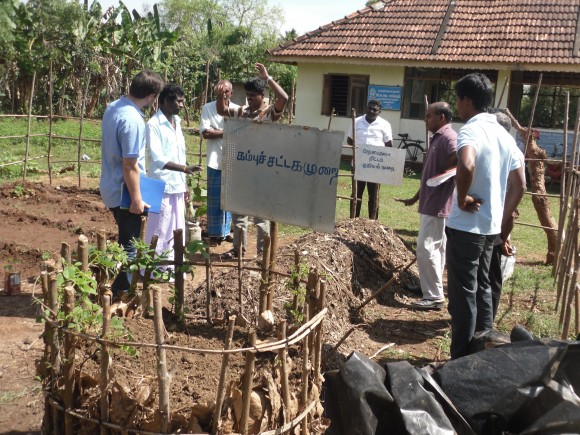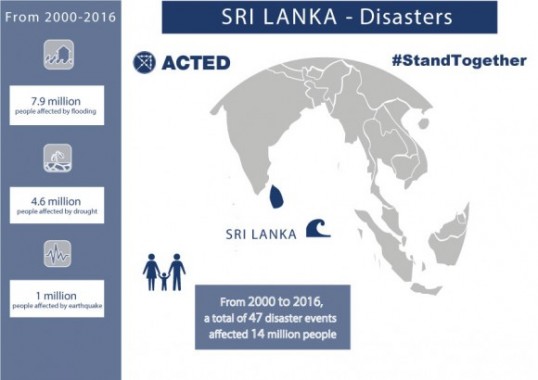Committed to support vulnerable Sri Lankan population for over 12 years

After the change of government in 2015, which has paved the way for a more conducive environment for rule of law and human rights, ACTED worked with media, lawyers and civil society organisations (CSOs) to enhance effective governance and respect of fundamental rights and freedoms. ACTED also continues to strengthen civil society organisations to ensure that they effectively participate in development processes and advocate for the needs of their communities.
ACTED remains committed to building disaster resilience after may 2016 severe floods causing spilling of toilet waste in the streets of urban areas, especially in Colombo and Gampaha districts, on the west side of the island.
Anton and Suthan told us about their humanitarian work to respond to urgent needs in the country:
Anton is a project manager in the north of Sri Lanka and has been working as a humanitarian aid worker for 13 years
‘Before starting in this sector, I was a teacher in Jaffna, a city in the northern area of the country. I was happy with my job and never thought about doing something else. However, when the tsunami hit Sri Lanka in 2004, I decided to apply for a position with ACTED in Colombo. The country was still at war and I had to go through seventeen checkpoints while travelling by bus at night. I got hired and the next day I was travelling to the area affected by the tsunami. I saw people suffering, children living in extremely vulnerable conditions, families overwhelmed by the disaster. I never came back to the school where I was teaching. When you see human suffering, you remember you have a heart.’
Suthan, national programme coordinator in Sri Lanka, resigned from his job as a government official to work for ACTED
‘After 10 years working for ACTED, I am sure that I will not return to my previous job in the government. I believe that non-governmental organisations are better prepared to address the real challenges that communities face every day. There is a space for us, for humanitarians and NGOs, to directly interact with the people affected by disasters, poverty or inequality and to really understand their problems. Once they receive our support, communities learn how to be resilient and are better prepared to face future challenges.’
